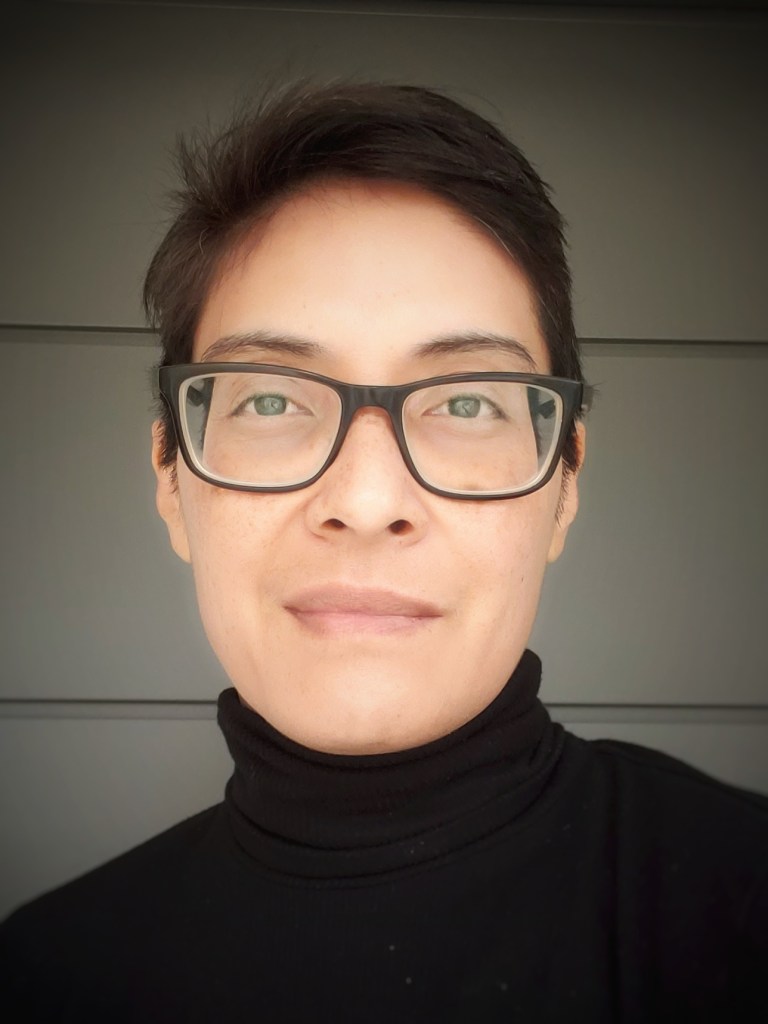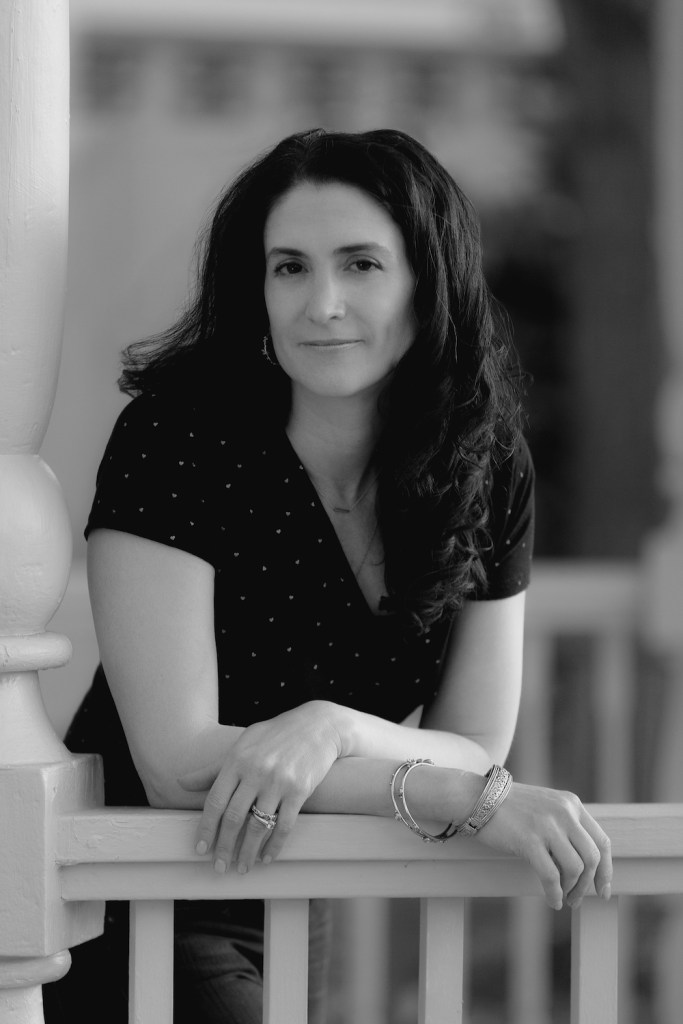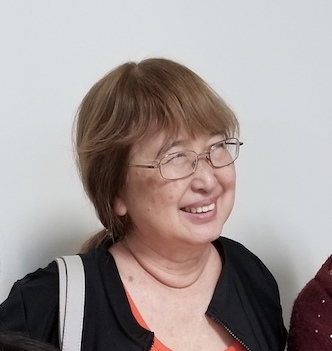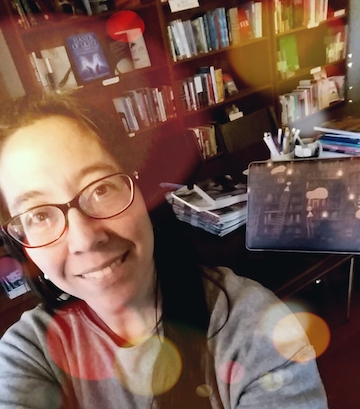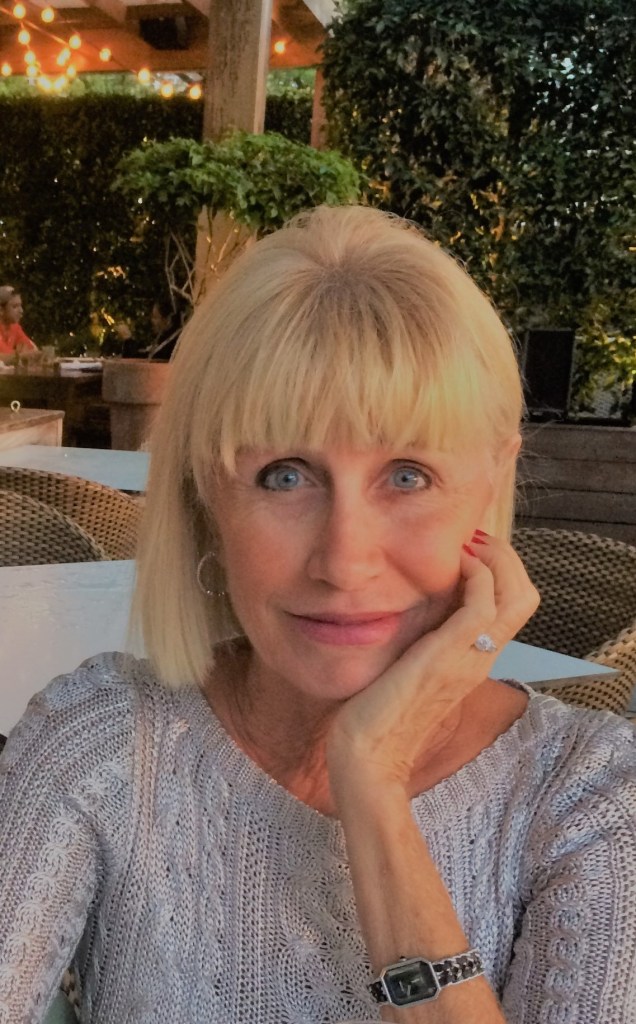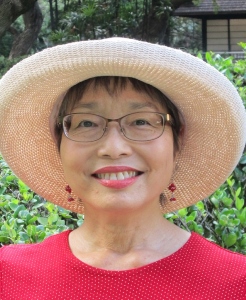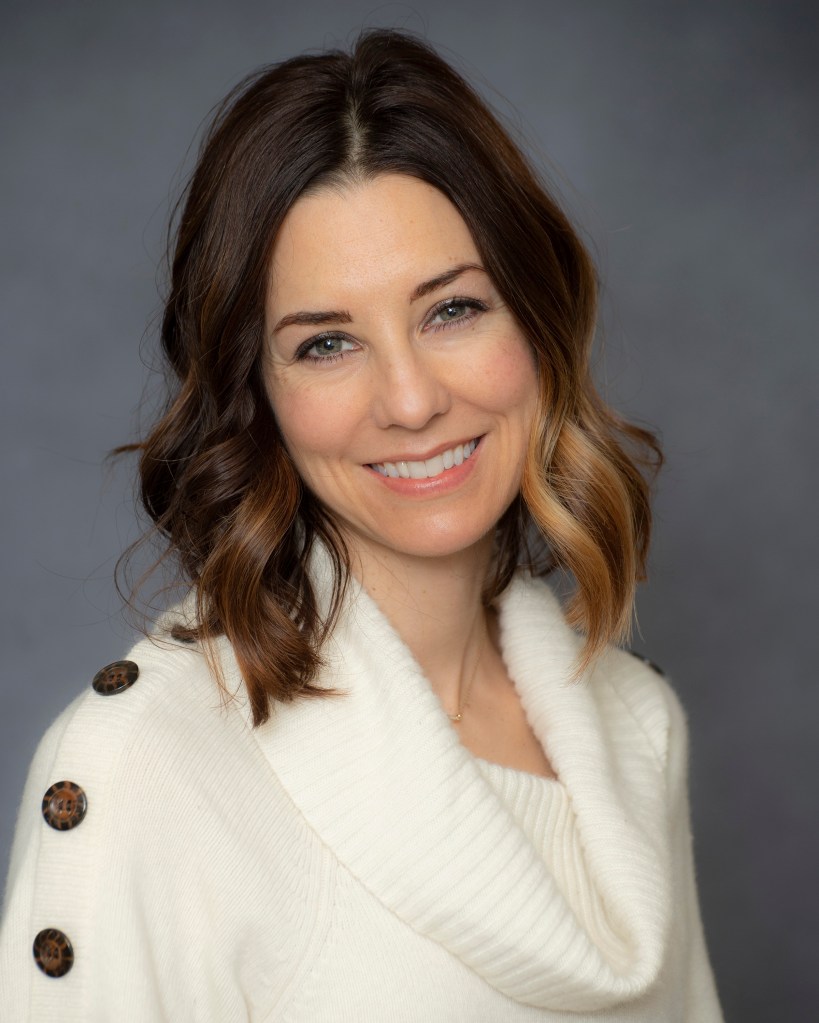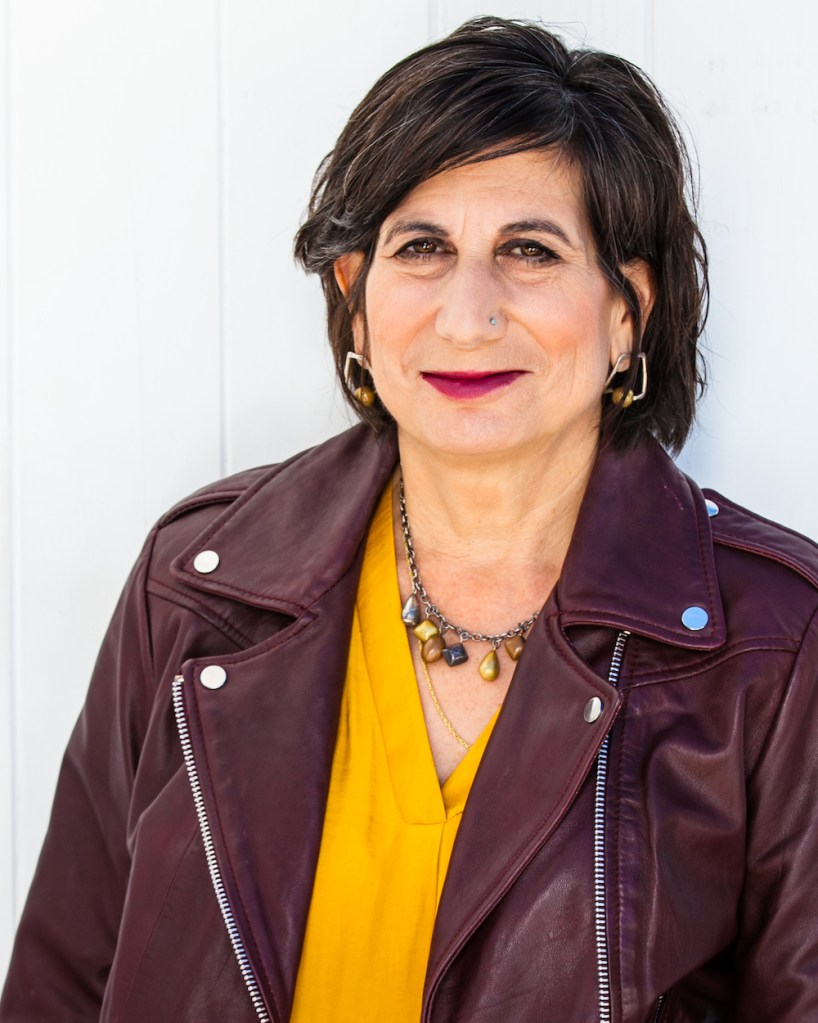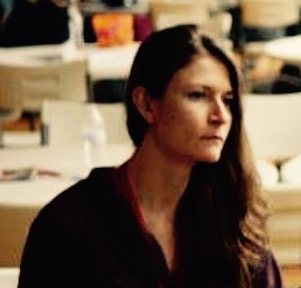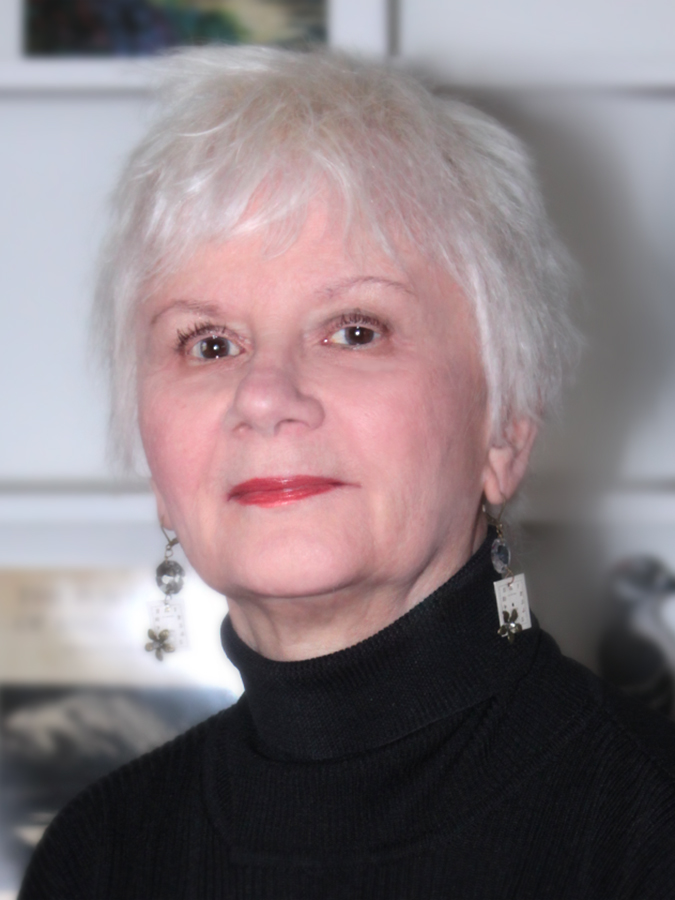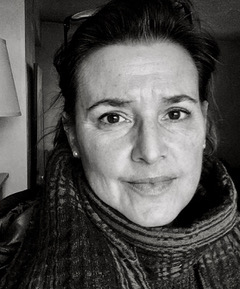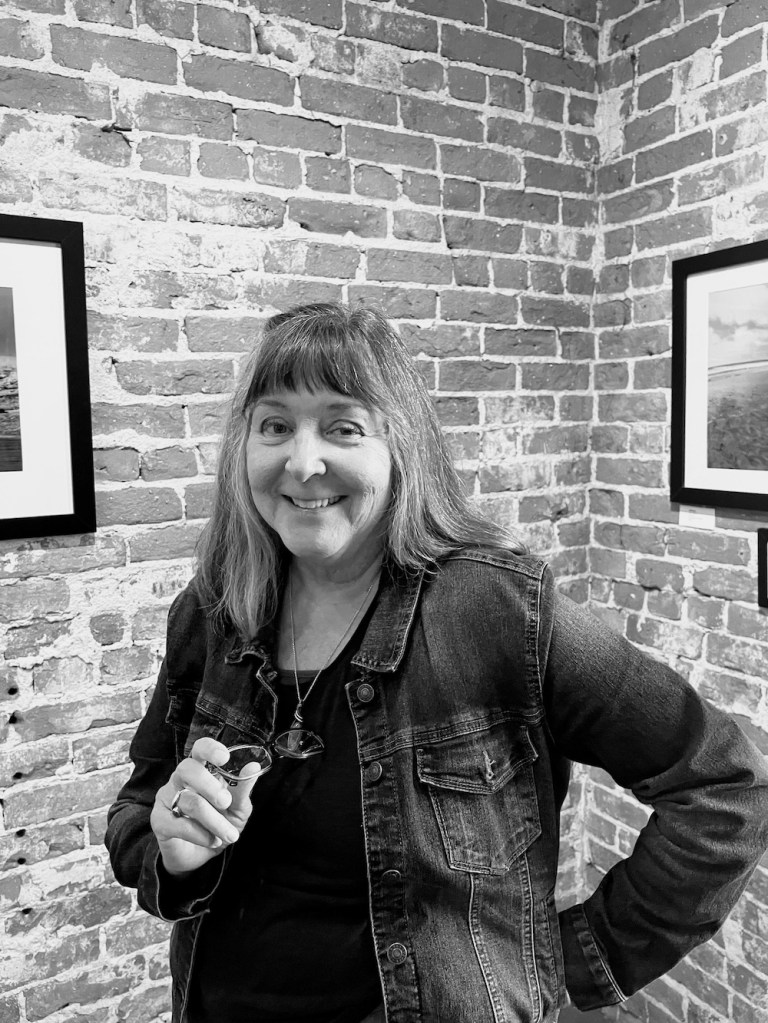Writers
Anjail Rashida Ahmad, PhD, is a published poet, educator and advocate, a professor of poetry and African American literature. She is also the founding Director of the Creative Writing Program at North Carolina Agricultural and Technical State University, retired. She has also published two poetry collections: The Color of Memory (Klear Vizion Press) and necessary kindling (LSU Press).
A U T H O R S T A T E M E N T
I am the culmination of ancestral dreams;
I am the best story I could ever hope to hear;
I am alive; my life matters; let me share my truth—
I believe in the power of and the necessity for ordinary, everyday people (who often live extraordinary lives) to tell their stories, speak their truths, value their experiences and share that which makes us whole. This life-transforming necessity propels me to share my poems and stories because a people who do not own or value the validity of their own stories, their own lives, and their places in the historical record will suffer at the hands of those who usurp this power.
Michigan septuagenarian Terri Watrous Berry has published her work over the past thirty-five years in anthologies, journals, magazines, and newspapers. In 2022 her poems were included in Wising Up’s anthology Adult Children, House of Zolo’s Journal of Speculative Literature Vol. 3, which was devoted to climate change, Oprelle’s Bigger Than Me anthology on the subject of compulsion, Syncopation Literary Journal’s issue regarding age and change, University of Michigan–Flint’s Qua Literary Journal, the December 2022 issue of Blink Ink, and We’Moon’s 2023 calendar date book.
A U T H O R S T A T E M E N T
I was a bit of a late bloomer. Didn’t sing with a country-rock garage band until my thirties, didn’t complete work for my Bachelor of Arts until I was forty-five, proudly receiving that diploma the same year the youngest of my three children, my only daughter, graduated high school. I joked I was on a twenty-eight-year degree program since my first three years of higher education were completed right after high school. At twenty I decided all I really wanted to do was marry my high school sweetheart and start having red-headed babies (which I assumed they would be), so I did. Writing was a passion I’d had all of my life but neglected after quitting college, until at some point in my mid-thirties when it refused to be ignored any longer. I began with lyric writing, garnering three awards from Nashville’s American Song Festival, but before long turned to poetry. So I was on the slide side of thirty-five before daring to submit one of my poems, and beyond thrilled the first time one was accepted for publication. Truthfully I still am, every time one finds a home. I’m delighted “To My Son in His Twenty-Third Spring” will again be in print, having appeared in its original form in 1998 in a quarterly journal dedicated to letter writing called Messages from the Heart. My oldest child—now fifty—really was in his twenty-third spring then. Someone once said a poem is never really finished, just abandoned, and that has been the case with this one. I only wish I could go back to Riverside Elementary in 1962 to tweak “It Happened One Day,” a poem of mine that took up the entire front page of the Riverside Star.
Natalie Boyle holds an MFA in Poetry from Bennington College. Her work has appeared in The Bohemyth and Matador Review, as well as Vermont Mom, where she is a contributing writer. She lives in Northwestern Vermont with her husband and son.
A U T H O R S T A T E M E N T
My husband and I bought our house in early Spring 2021. We decided almost immediately (and maybe a little spontaneously) to partially finishthe basement. My husband chose to work from home, even with all the construction going on, while I shuttled back and forth to my parents’ house twenty minutes away with my ten-month-old son. It was during one such trip home that I noticed a boy waiting to cross the street with these huge fishing poles. I began to write this poem right then, first in my head and later in the Notes app of my phone.
At that time, I was also enrolled in a virtual poetry seminar, of sorts, called Poetry of Resilience. Two hosts interviewed one poet every week for six weeks, with an eye and an ear toward how poetry turns ordinary moments into extraordinary ones. Those six weeks (and the six that followed—I enrolled again) changed the way I saw and engaged with the world. My poetic mind was sharp. I was primed when that fisherboy crossed my path.
Poems can be a snippet of a moment in time. That’s helpful during revision because I’m transported there. A year and a half later, I still remember how much I envied this boy’s freedom. My life then felt very much closed off: a new mother, a new homeowner, a wife. I felt weighed down, maybe even burdened, by the responsibility of it all.
In January 2022, I began to get up early to write every day. I reclaimed this part of me I allowed to slip away. It was in the wee hours of the morning, when our home was quiet and dark, my husband and son still sleeping, that “The Fisherboy” came to life. I did too.
I. Buenaventura (aka Patrick) is a poet and writer. They have an MFA in Design & Technology from Parsons School of Design. Patrick has practiced self-defense and martial arts since the early 1990s and is the author of a unique guide on personal safety and protection, Your Body is Your Weapon: The Little Self-Defense Handbook, which they illustrated and wrote in free verse poetry. In addition, they are an activist for LGBTQ and women’s rights and fought for marriage equality in New Jersey, which led to their own marriage being the first same sex union in their hometown in 2014. Patrick identifies as transmasculine and nonbinary and is currently documenting their transition through a series of poems.
A U T H O R S T A T E M E N T
This is the first work I’ve put out in a public space about being transgender, and it is one of self-affirmation. Though transitioning is a serious and significant life decision, keeping this poem light and humorous in tone aligned with how I am trying to navigate my own journey. Gender is a spectrum, and each trans person’s expression varies according to the individual. For me, a physical change is meant to be perceivably masculine. So, I wanted to imagine the bodily transformation that comes with medical transition, feeling that the words should be graphic and literal. Because hormone replacement therapy may alter the mind somewhat, I also spoke to some conventional traits we tend to associate with gender. Being assigned female at birth (AFAB) and living some fifty years in that experience, I felt I had to point out the economic advantages given to males and the privileges that some trans men experience after transition even in the most mundane of things—“so many choices i’ll have. i could afford it”—which speaks specifically to the gender pay gap and “pink tax” (the higher cost of products marketed to women versus those marketed to men). The external experience of transitioning is not a straight path to euphoria. Often trans folks are dealing with feelings of self-hatred coupled with a deep animosity from others who may want to target us with physical, emotional, and mental harm. But rather than cower in fear I preferred to address this in a droll, somewhat sarcastic, tone. Perhaps it is my age speaking. I have gone from burying my head in the sand about my own gender dysphoria to realizing that my life is a gift. “quod erat demonstrandum ■” starts with an initial a lack of certainty of what to expect in transitioning and ends in absolute conviction about who I am.
Lishan Chan (Chan Lishan) is a Singaporean writer and researcher. She is the author of Searching for Lee Wen: A Life in 135 Parts (Epigram Books 2022), Yellow Man (Epigram Books 2021), and A Philosopher’s Madness (Ethos Books 2012). She is currently a doctoral student at the University of Hawai‘i at Mānoa, where she was named Grace K. J. Abernethy Fellow in 2022. She was awarded the 2021 Biography Prize by the Center for Biographical Research.
A U T H O R S T A T E M E N T
I write to be transformed. To make sense of lived and remembered experience, whether my own or that of others. In biography, I write to understand lives in their richness, to document what is felt, to record everyday encounters, to make clearer the extraordinary in ordinary lives. I write to be good. To figure out ways to research and write that reduces complicity. To be aware of extractive and unethical modes of writing and knowledge production. To be sensitive to the process and not only the product. I write to make connection. Vulnerability builds connection. In telling and listening to stories, we build communities. Revisiting the past, we discover the worlds inhabited by our elders and ancestors. In “Two Men,” I tell the stories of Vincent Cheng and Tan Kah Kee. My piece is about two different men in very different circumstances who worked for social justice in very different times. Tan Kah Kee rightfully earned his place as a celebrated name in the pantheon of Chinese legends. Vincent Cheng never reached such commanding heights, but should not be forgotten.
Carrie Esposito’s short stories have been published in Georgia Review, Ruminate Magazine, Monkey Bicycle, The MacGuffin, King Ludd’s Rag, Pif Magazine, Everyday Fiction, Mused, and Little Rose Magazine. Her stories have been finalists for the William Van Dyke Short Story Prize, the Curt Johnson Prose Awards, and the GristProForma contest, and have received an Honorable Mention from Glimmer Train. She is working on her novels and short stories and is an Educational Consultant for Teaching Matters in the New York City schools. Carrie tweets about books and writing @carriebesposito, and her work can be found at http://www.carrieesposito.com.
A U T H O R S T A T E M E N T
Stories often appear to me in moments when I become curious about a person or a place, and I can always sense a buzzing somewhere in my gut when I know something must be told. For “Sacred Ash,” I was visiting Shoshoni Ashram near Nederland, Colorado with another writer friend, and we met one of the young men living at the ashram. After learning about his life there, I curled up on a couch and started writing a story in a notebook, narrated in the voice of a man in his early twenties who had decided to live at an ashram like that one. While this person we met seemed affable and content, I soon discovered that my character was escaping something, and I learned that he was striving through the rituals of life at the ashram to overcome some of his anxieties and griefs. To better understand him, I needed to take him to his family of origin, where he tries to hold onto the practices that quickly elude him back in his childhood home, as happens to so many of us. As I wrote and rewrote this story, I felt a tenderness toward Nate, a particular sense of the vulnerability of a boy wanting to be loved by others and mostly by himself.
Kathleen Hellen’s latest collection is Meet Me at the Bottom from Main Street Rag Publishing Co. Her credits include The Only Country Was the Color of My Skin, her award-winning collection Umberto’s Night, published by Washington Writers’ Publishing House, and two chapbooks, The Girl Who Loved Mothra and Pentimento. Hellen’s awards include the Thomas Merton poetry prize and prizes from the H.O.W. Journal and Washington Square Review.
A U T H O R S T A T E M E N T
Throughout childhood, on late-night, I must have seen the movie at least a few times. As the ship carrying the master showman Carl Denham and his crew nears Skull Island and the fog rolls in with the menace of beating drums, there’s a feeling of dread; we are about to enter a world unknown, detached from the order of things. A world primordial, home to prehistoric life and Kong, a 25-foot-tall gorilla. The 1933 King Kong has always been more than the monster film that captured the imagination of Americans during the Great Depression, and of later generations through its iterations. It is more than social commentary on colonialism, more than cautionary tale about the evils of capitalism. More than a retelling of beauty and the beast. In the film, when natives on the island dance in ceremony dressed as apes, we are reminded of the primal forces that reside within us, costumed by our public selves; we remember we are capable of violence and cruelty. In “The Summer I Started Calling Him King Kong,” the father, under pressure from his failing business, acts with cruelty toward the dog whose loyalty is a given. The violence is gratuitous, his anger displaced, a reaction to his own fear of displacement as the dominant authority and a link in the chain of harm that will likely perpetuate with his children. A dark episode in the island-jungle of the human mind. In the words of King Kong’s Denham, who had fallen on hard times in the Depression and planned to capture Kong for exhibition in New York, “He was a king, and a god in the world he knew, but now he comes to civilization merely a captive.”
Lillian Howan‘s writings have been published in Alta Journal, Asian American Literary Review, Café Irreal, Calyx, Jellyfish Review, the museum of americana, New England Review, South Dakota Review, Vice-Versa, and the anthologies Ms. Aligned 2 and Under Western Eyes. She is the editor of Wakako Yamauchi’s collection, Rosebud and Other Stories (University of Hawai’i Press, 2011). Her debut novel, The Charm Buyers (University of Hawai’i Press, 2017), set in Tahiti during the last years of French nuclear testing in the Pacific, received the Ka Palapala Po’okela Award for Excellence. Her novel The Spellbound is forthcoming from Why There Are Words (WTAW) Press.
Rachel King is the author of the novel People along the Sand, the linked short story collection Bratwurst Haven, and two poetry chapbooks. Her short stories have appeared in One Story, North American Review, Green Mountains Review, Northwest Review, and elsewhere. She lives in her hometown of Portland, Oregon.
A U T H O R S T A T E M E N T
Aaron is coming of age within the strictures of his education, class, family background, and emotional maturity, as we all did, and is trying to do the right thing, as most of us try to do. At the end of the story, he hopes that Colorado will skip its spring snowfalls that year, that his situation will turn out well without him doing anything, but the reader knows that’s wishful thinking, that he will need to make difficult decisions about his child, his debt, and his profession—and that refusing to make them is a decision, too. If I had the chance, I’d tell Aaron that the world holds more positive possibilities in it than he can imagine right now. I’d tell him that he can trust some people with his secrets and hard decisions, even though those people might not be family. I’d tell him that he’s smart and a hard worker, that anyplace would be lucky to employ him, that even without more education he could eventually find a more lucrative job. I’d ask him what he wants to do, both personally and professionally, not only what he thinks he should. I wrote the first draft of “A Deal” in four sittings, by hand, and uncharacteristically cried at the end. Although this character and his situation are different from me and mine, his story came from a place deep inside me. My hope is that “A Deal” might encourage readers to have more compassion for young people, especially young men coming of age in this era of college debt and service jobs—and also maybe encourage readers to have more compassion for their younger selves, too.
Emmy Laybourne is the internationally bestselling author of six young adult novels, including Monument 14, Sweet, and Berserker. Her debut, the post-apocalyptic novel Monument 14, has been published in nine languages and was a New York Times Editor’s Choice. Emmy’s social-satire/horror book Sweet won several awards including a Junior Library Guild Award and the Eliot Rosewater award. Her latest books, Berserker and Ransacker, are historical fiction and tell the story of a family of Norwegian teens with ancient Viking powers. Emmy is a former character actress, and is occasionally recognized from her role as Mary Katherine Gallagher’s best friend in the movie Superstar.
A U T H O R S T A T E M E N T
Back when I was a young actress, I once experienced a moment backstage on a television set between two twin brothers. One of them had screwed up a take several times in a row and we had to reset. The two brothers were passing and one said to the one who had screwed up, “You f get it together NOW.” The other said, “Yeah.” The twins were so close, they basically shared a single inner voice—a voice that was stressed out and pretty brutal. I recognized it as how we all talk to ourselves inside our own heads. So, one of the ideas I started out with for “First Party Back” was using a narrative voice that would vibrate with Drew’s disdain for himself. He’s pushing himself so hard to be “back to normal” and to party like he used to, but it’s no good. There’s a terrible knot of grief and shame eating him up from the inside and it’s blocking him from any joy or connection. The moment at the end when Drew opens up to his best friend is when everything breaks open. I tell you, that scene was emotional to write. We all deserve compassion and I didn’t hold back at all when writing Malik’s generous and loving response to his friend. Compassion heals, especially when it’s meeting vulnerability. This kind of emotional fluency is a birthright that I see young men claiming as their own in the world right now. I’m the mother to a teen boy, and the honesty and tenderness I see among the teenagers that come over to my place (and eat all my food) is inspiring and heartening.
Linda Malm was first published as a teen. She only returned to poetry after she retired as a college dean. She was selected in a statewide competition as a Writer of Los Luceros (a Robert Redford / New Mexico Film Board enterprise). Her most recent poetry has appeared in four Adobe Walls anthologies, the Iowa Summer Writing Festival Anthology, The Examined Life, Sugar Mule: Women Writing Nature, Abandoned Mine, Smoky Blue, and First Literary Review—East. Her chapbook Winded from the Chase is forthcoming from Kelsay Books.
A U T H O R S T A T E M E N T
Like visual artists, I find being a poet is about seeing and then about thinking and re-imagining the original image. The craft of working with language and form hones the poem. Often a new speaker emerges. The poem becomes its own.
Pat Matsueda is a founding editor of Ms. Aligned, a mom to cats Ivy and Candace, and the retired managing editor of Mānoa Journal. Her essay about her mother, “My Mother’s Story,” will appear in the winter 2023–2024 issue of Kyoto Journal, a culture and arts magazine published in Japan. Her work-in-progress is “Light Sleeper,” a story about Isaac Silva, a young Puerto Rican filmmaker, and Asami Kaneko Morris, an Okinawan cab driver and healer. someperfectfuture.com
Donna Lee Miele is a reader, writer, and editor from New York’s Hudson Valley. Her fiction and creative nonfiction have appeared in Blood Orange Review, Massachusetts Review, North Dakota Quarterly, Ms. Aligned 3: Women Writing About Men, and elsewhere. She is a founding member of River River Writers’ Circle, a member of the Inkwell Journal editorial board, and a member of the Ms. Aligned editorial board.
Adele Ne Jame is a first-generation Lebanese American living in Hawai‘i. She currently serves as Professor Emeritus at Hawai‘i Pacific University. Previously, she served as the Poet-in-Residence at the University of Wisconsin–Madison. She has published four books of poems, including Field Work and The South Wind. Her many honors include a National Endowment for the Arts fellowship in poetry, the Elliot Cades Award for Literature, a Pablo Neruda poetry prize, and a Robinson Jeffers Poetry Prize. Her poems have appeared in many fine journals, including Atlanta Review, Nimrod, Notre Dame Review, Ploughshares and Denver Quarterly. As broadsides, her poems were exhibited at the Sharjah, United Arab Emirates International Biennial, and most recently at the Arab American National Museum, Dearborn Michigan. She served as the Mikhail Series 2022 lecturer at the University of Toledo.
A U T H O R S T A T E M E N T
“Grief, a Revolving Landscape” is part of a series of poems in my new manuscript, “First Night at the Beirut Commodore,” which deals with the Lebanese diaspora and my family’s tragic stories about the many wars in the region. My father’s parents and five siblings died of starvation and disease, along with tens of thousands, when the Ottomans sanctioned Mount Lebanon during World War I. Since my father died when I was young, I have spent most of my adult life trying to piece together fragments of his story. Among other things, this poem tries to imagine his early life in Maasser El Chouf, the highest village in Mt. Lebanon at about six thousand feet, where it sits just under the stunning Chouf Cedar Reserve. The trees there are referred to as the “cedars of the Lord.”
Angela Nishimoto was raised on the windward side of O‘ahu, taught as a lecturer in botany/biology on the leeward side, and resides in Honolulu with her husband. She holds a master’s degree in botanical science from the University of Hawai‘i at Mānoa. Since the late 1990s Angela has published more than forty pieces of poetry and prose, mostly in—but not limited to—Hawai‘i publications. She recently published her first book, a literary romance, Isabella’s Daughter, with Pueo Press in Kāneʻohe.
A U T H O R S T A T E M E N T
As a longtime teacher at Leeward Community College and a writer born and raised on the windward side, I’ve noticed things that make males in Hawai‘i different from those on the mainland. In my poetry and prose, I write about males who still have one foot in their local childhoods while trying to appear adult and grownup—to emulate models of masculinity they see in national media. My work in this edition of Ms. Aligned expresses this dilemma. We take it slow here. We are the fiftieth state, always a few weeks—sometimes a few years—behind the rest of the union in embracing trends, learning the latest lingo, and trying popular foods. When did avocado toast become popular in Hawaii‘? Long after it was a thing on the mainland. Hawaiian time is a humorous concept created to explain many things. One thing we don’t talk about is how it affects the way we grow, we come of age
Rachael Peckham is the author of Alight: Flights of Prose (UnCollected Press) and her prose poems and lyric nonfiction have won prizes and appeared in Crab Orchard Review, Gulf Coast, Indiana Review, Hotel Amerika, The Orison Anthology, Passages North, Southeast Review, South Loop Review, Tupelo Quarterly, and elsewhere. She holds a PhD in creative writing from Ohio University and teaches at Marshall University, where she serves as a Drinko Academy Fellow and professor of English.
A U T H O R S T A T E M E N T
I grew up in a rural part of southern Michigan a few miles from the Indiana state line. We were surrounded by miles of corn and beans that stretched in every direction, with my grandparents, aunts, uncles, and cousins as our only neighbors. It’s hard to overstate how sheltered I was, growing up on Pridgeon Farms, my family’s 175-year-old homestead. We never bothered locking doors or removing our car keys from the ignition—which is exactly how my brother’s prized first car, a forest green 1991 Dodge Stealth with tan leather interior—disappeared quietly from the driveway one night. What would eventually become a funny, if not legendary, family story was still a disturbing reminder of how crime could come knocking at any time; of how easily and precariously our innocence could be punctured. I wrote “This Is the Story of How My Brother’s Car Was Stolen” with that uncomfortable reminder in mind—but also out of acceptance of the tenuous borders between life and death; desire and danger; autonomy and vulnerability, nowhere more inextricable than in rural America.
Suzanne Rutledge Robinson earned her BA at Texas Tech and MA at Lesley College, Cambridge. She taught secondary English for thirty-two years in Texas and Wyoming. She has served as a community ambassador to Greece, a member of the Cooperative Learning Cadre, and an instructor for the Wyoming Writer’s Project. Her works have appeared in Denver’s Ocher Lifelong Learning Institute Reflections and other literary journals. Her Life Writers colleagues continue to share and critique their writings through Zoom as she and her husband RV fulltime with her service dog Diego. Quilting and watercolor compete for any leftover pastime.
A U T H O R S T A T E M E N T
I choose family.
I choose
the deep piercing pain
of life in my family’s chaos.
Realizations that life as it’s given
Is what I’ve got and
No matter how hard I know I should change,
I won’t
until I want to enough.
The never-ending questions—
the open-ended questions—
the un-answered questions—
about lost voices in time
untangling roots on a family tree.
Father gifts of proverbial sayings
that take a lifetime to comprehend.
The searing search to understand why
that sweet grandmother could have been so insecure,
so erratic to choose her father over
her own child,
while I had to helplessly look on
as Death stole mine.
The changes in my body and mind that
no matter how badly I
want to enough, the cold hard
fact remains like
sidewalks shifting and stirring
from the earth and roots
underneath until they crack by
pressure,
still recognizable but no longer the same.
Carla R. Sameth is the Co-Poet Laureate for Altadena, California, 2022–2024. Her chapbook What Is Left was published December 2021 and her memoir, One Day on the Gold Line, was reissued by Golden Foothills Press in 2022. Her writing on blended, queer, multiracial, and single-parent families appears in a variety of literary journals and anthologies. Carla’s work has been twice named as the year’s Notable Essay in Best American Essays. A Pasadena Rose Poet, a West Hollywood Pride Poet, and a former PEN Teaching Artist, Carla teaches creative writing to high school and university students and incarcerated youth.
A U T H O R S T A T E M E N T
I wrote poetry throughout my life but in smaller doses, every so often, as opposed to other genres I wrote more frequently in (memoir, nonfiction, fiction). When I got my MFA, I began to experiment more with poetry and study with some poets. Gerda Govine Ituarte, founder of the Pasadena Rose Poets, identified me as a poet, selected me to be one of the Pasadena Rose Poets, and from there I found myself increasingly drawn to poetry and other shorter and hybrid forms. As I got older, the world changed, we entered the pandemic, and I found myself drawn almost exclusively to poems and hybrid or flash/short form, whether fiction or nonfiction. Something about the sense of urgency encapsulated in an economy of words. My outlook as a writer is framed by my identity as a 63-year-old queer Jewish woman, a mother of a Black son, and wife of a trans man, and all the vulnerability, joy, and strength that are part of that identity. I write for connection and to offer a sense of resilience and possibility to those who relate to issues I write about. As a writer, I hope to help readers feel less alone. As a teacher, I strive to help others tell their stories and hone their craft while experimenting with new forms. The journey of motherhood informs much of my writing. Finally, I write to process, reflect on, and digest what happens to me and in the world.
Leigh Claire Schmidli thinks of many places as home: from Bangkok to Den Haag, from the Midwestern United States to the South. She writes poetry, essays, and fiction, loves reading work with lyrical leanings, and cooks elaborate meals that remind her of all the places she calls home. She’ll use onions in just about anything, even a story. Her work has appeared in such journals as Carve, Bellingham Review, and Ruminate, and she’s currently at work on a braided novel in two voices, a mother’s and daughter’s.
A U T H O R S T A T E M E N T
Growing up, I could go out the back door and be surrounded by evergreens. They were so tall and wide that I could step through a gap in the branches and walk beneath. I could find shelter there when I was small, and even as I grew. There was so much room and yet the long, needled branches also swept down low—protecting, shielding—and underneath I pretended to live. Walking through the curtain of needles, a change always struck me. From outside, the trees looked full, sturdy, unfailing. The needles a constant green and plush, tipped with flashes of blue. But then underneath, the bare, ridged wood of the trunk. The naked ground. And strewn along the ground, the brown, almost golden needles. Delicate and spent. This world expects much from men. To paraphrase bell hooks, the first act of cruelty men are asked to commit is against their own selves—to kill off the emotional pieces. This cruelty seems especially common in the coming of age years. Still, as women in the lives of men, we get to see glimpses of the tender. This poem has been born of those small, quiet glances
Patricia Schultheis is the author of Baltimore’s Lexington Market, a pictorial history published by Arcadia Publishing in 2007, and the award-winning short story collection, St. Bart’s Way, published by Washington Writers’ Publishing House in 2015. Her most recent book is A Balanced Life, a memoir published by All Things That Matter Press in 2018. She has received awards from The Fitzgerald Writers’ Conference, Memoirs Ink, The American League of American Pen Women (2010, 2020, 2021), Winning Writers, and Washington Writers’ Publishing House. A widow, she lives in Baltimore.
A U T H O R S T A T E M E N T
As was the case with “Sex with a Blind Man,” I sometimes carry the nucleus of a story around in my head for years. When I lost my husband, a neighbor who had lost his partner became very helpful to me. We were having drinks one evening when he told me about an experience he had in a hotel in Washington, DC that was frequented by homosexuals. He said that he had left his door unlocked one night and a man entered. Without saying a single word, this man proceeded to make love to my neighbor, who told me, “It was the best sex I’ve ever had.” And that was the genesis of “Sex with a Blind Man.” I sometimes think we freight sex and sexuality with so much meaning we lose sight of the fact that sex is just one of many dimensions of life and that life itself is a wonder beyond what mere words can express.
Melanie S. Smith grew up in suburban Boston with a first-generation Sicilian American mother and a father from a tiny Nova Scotia fishing village. The first in her family to complete college, she understood early on how culture and class shape one’s life. She began writing in earnest after years working in the fields of justice and public health. In 2019 she graduated from the GrubStreet Writers memoir incubator and went on to residencies at the Vermont Studio Center and Craigardan. Her creative nonfiction has been published in Ruminate, Windhover Journal, Blue Mountain Review, and Birdcoat Quarterly. Since 2008 she has taught writing at Boston University.
A U T H O R S T A T E M E N T
As a lonely kid, I used to climb up to the roof and read poetry in the crook of the chimney; Keats, Emerson, and Shakespeare were friends who valorized life in a working-class suburb. But the arts were not a practical field of study, so I went on eventually to work for the US Department of Justice, where—ironically—I was tapped for writing assignments, everything from briefing papers to talking points, because of my skill. That was a wake-up call. After ten years, I quit my government job for a life with space in which to write. Like many women, however, I got married and had a child instead, eventually getting up before dawn to bang away on my computer while my child slept. What I wrote about then was what I write about now: the legacy of family history, known and unknown, and the ways it persists in showing up until we are curious enough to acknowledge and excavate it, even the parts that are complicated or traumatic. Our lives are points in a timeline extending back into prior generations and forward, into a future unknown. Thinking that way has persuaded me to think more expansively about both my fiction and creative nonfiction. My latest project is a novel about Carrie Buck, whose appeal of a sterilization order went all the way to the Supreme Court in 1927. The case continues to resonate in the lives of women today. But my earliest writing about intergenerational legacy focused on my father, whose boyhood in Nova Scotia was unknown to me until I started digging. It was well worth the effort, changing the way I thought about my father, myself, and the intimate work of writing, which is for me a way to understand my life, often difficult but always affirming.
Eva Quintos Tennant is a Maryland-based writer and photographer whose work has appeared in River River Journal, Welter, Maryland in Poetry and elsewhere. She holds an MFA in creative writing and publishing arts from the University of Baltimore where she was the recipient of the Plork Award, recognizing “extraordinary creativity, originality and imagination in the integration of creative writing and book design.” An advocate who supports the emerging voices of mature writers and artists, she currently serves on the Board of Directors at Passager Books, an independent press that specializes in publishing older poets and writers. She currently leads a marketing communications and graphic design team at the University of Maryland by day, and by night is at work on a narrative about first-generation identity.
A U T H O R S T A T E M E N T
As I am a daughter of Filipino immigrants, my writing is informed by lifelong experiences growing up between two cultures where traditions, assimilation, gender expectations, and the nuances of language have created both challenges and opportunities. “Note For Your Sister” emerged from a series of short stories that explores the ties that bind family—whether the family you’re born into or the family that you make. It centers on the unspoken bond between high-school-aged twins, a brother and sister. That bond becomes a lifeline when one of them succumbs to a secret first love that is both exhilarating and dangerous. The story is told in second person from the male protagonist’s point of view, something I hadn’t originally intended. But as the scenes and situations unfolded, they took on a life of their own, and it quickly became clear that the voice needed to be the brother’s. What I learned from this was to listen closely with an empathetic ear, and to trust that the characters will reveal themselves as well as the journeys they need to take in the narrative.
Rebecca Thomas’s work has appeared in Prairie Schooner, ZYZZYVA, and the Massachusetts Review, among other places, and has been nominated for the Pushcart Prize. She was the senior editor for Ms. Aligned 3 and was a fiction reader for Guernica. She received her MFA from West Virginia University. She lives with her family and teaches writing in Charlottesville, Virginia. You can learn more about her work and current projects at rebeccathomaswrites.com.
A U T H O R S T A T E M E N T
My first jobs out of college were as a K–12 substitute and a high school creative writing teacher in Southern California. Once I left for graduate school in West Virginia, I kept circling back to the students who impacted me the most. Hector is an amalgamation of the boys I grew up with and those students who stayed with me. As an educator, you get to bear witness to the push and pull that comes with adolescence, and I saw the wonderful vulnerability in students like Hector. What I was drawn to in this story is the incredible difficulty that boys face as they navigate their own sexuality in this heteronormative world, the pressures, the desires, the expectations. Living in Southern California in a neighborhood a lot like Hector’s, I was drawn to the very real lines that exist between neighborhoods and classes. I was drawn to the tension that comes from a wealthy, predominately white, private university situated next to a rapidly gentrifying neighborhood. I kept circling around the question: how does a Latinx boy claim his own identity in a sea of so much racism? How does he claim his identity while confronting micro and macro aggressions daily? And how does he still maintain vulnerability? How does he grow with the people he loves most? Now, as a parent to two young boys, I think about Hector often. I know that sooner than I want, my kids, too, will come of age. What choices will they make? What choices will they regret? What pressures will they face? As a parent, as an educator, as a human, I can only hope that they seek out the relationships that hold them up
Caylee Tierney is an Australian writer of young adult fantasy fiction that explores themes including identity, truth and freedom. Her short fiction is featured in Aurealis magazine and anthologies such as Lockdown Fantasy #5 and Sweet Treats: Cupcake. She holds a PhD in English/literature and researches in the areas of popular fiction, publishing studies and children’s fiction. Connect with her on Twitter: @CayleeTierney
A U T H O R S T A T E M E N T
“Taking Flight” is set in a world designed collaboratively as part of the Syllble One Humanity Writing Collective. Many thanks to my teammates Lianda Burrows, Pat Matsueda, and Rosa Martelletti, as well as to the overall collective, for offering so much support and guidance. The collective talked a lot about hope and the difficulties associated with finding hope when faced with major problems at a global level. As a big fan of happy endings, I wanted to write stories with positive resonance, and there seemed no better character to place at the center of those stories than a young person trying to find their way in the world. To my mind, the liminality of youth can exacerbate uncertainty around dire problems, but can also make hope all the more poignant. Coming of age stories seem to have a great capacity for both prompting questions and offering answers. As a reader, I have a soft spot for stories that sit with the bumpiness of identity forging, yet take advantage of the smoothness and definitive quality possible in coming of age narrative arcs as an entire progression. The ultimate resolution in these arcs provides a comforting contrast to my perception of coming of age in a real-world context. Typically, though, such stories leave me wondering what comes next, even when the characters might have reached an equilibrium. I revel in that wondering and have tried to create a space for the same with this story and character. My character Wren’s identity as a young man strikes me as most meaningful when it comes to the deep uncertainty he holds about himself and his abilities. While I’m unsure whether the sense of vulnerability would be different in the case of a young woman (or indeed a nonbinary character), female vulnerability would certainly present with different dynamics, in my mind. I appreciate being able to elide elements of my own reality, which I would see in the uncertainty of a young woman, through the character of Wren—there is something freeing about such an experience of writing (and reading), which is perhaps reflected in Wren’s journey within “Taking Flight.”
Karen Warinsky began publishing poetry in 2011 and was named as a finalist for her poem “Legacy” in the Montreal International Poetry Contest in 2013. Her work appears in several anthologies, including Nuclear Impact: Broken Atoms in Our Hands, the 2019 Mizmor Anthology, and lit mags including Blue Heron, Circumference, and Consilience. Her books are Gold in Autumn (2020) and Sunrise Ruby (2022), both from Human Error Publishing, with work centering on midlife, relationships, politics, and the search for spiritual connection through nature. She is retired from careers in media and teaching and now coordinates poetry readings under the name Poets at Large in Connecticut and Massachusetts.
A U T H O R S T A T E M E N T
The vision I had for a series of poems titled “Dining with War” comes from a realization of how normal we can feel around warfare—internal, external, psychological, and actual battles. When I began writing these pieces, I first thought of the Vietnam war and how that impacted my life as a child, watching it on television and then later meeting people who were actually in the war. After I wrote those poems, I looked back over my life and realized there were many and varied instances of “warfare” of all kinds, and I was able to narrow those down to times that involved meals. Everyone is affected. We maneuver ourselves around these situations daily, and hopefully come to realizations about life that help us find purpose, beauty, and ways to help each other.
Cover Artist
Jessowens Young (b. 1986) is a multidisciplinary self-taught artist whose
work focuses on living while Black in the United States. Her work seeks to highlight the resilience and joy of Black people in the United States, especially during childhood. She uses her art to explore the lives of Black people, including interior lives, both physically and emotionally. Jess works primarily with acrylics, oil pastels, oil pigment sticks, and acrylic inks on paper. Her works include portraiture, figurative painting, and collage. She also works digitally along the same themes. Her inspirations include artists such as William H. Johnson, Elizabeth Catlett, Emory Douglas, Delita Martin, Henry Taylor, Deborah Roberts, and Alice Neel, and authors such as Octavia Butler and Toni Morrison.
A U T H O R S T A T E M E N T
My inspiration is drawn from observation of Black life. I look to my lived experiences, as well as those from my wife, family, friends, and communities, including my in-person and digital communities. My art practice centers figuration and portraiture, but I am currently adding aspects of abstraction to my latest work to explore the Black experience more fully through my lens. I am interested in the interactions of figure and space to create narratives and meanings and in how colors and shapes evoke emotions. Memory and the emotions related to memories also drive my art practice. I hope that when viewers interact with my work, they are pulled not only into its physical attributes, but also pulled a bit within themselves to experience and connect with the emotions my work evokes.




